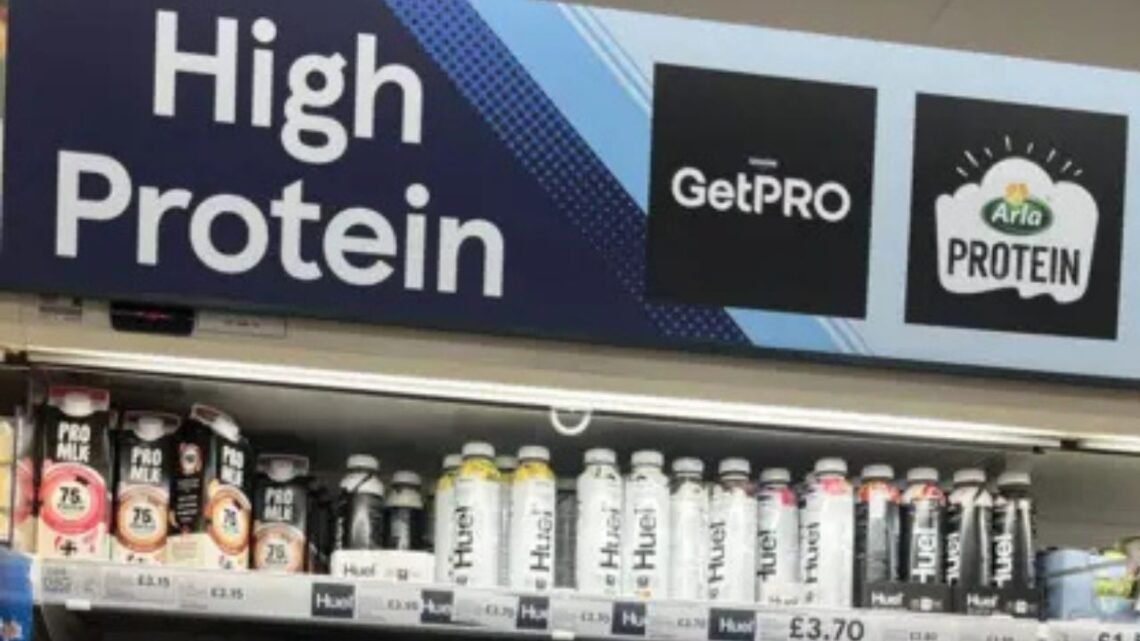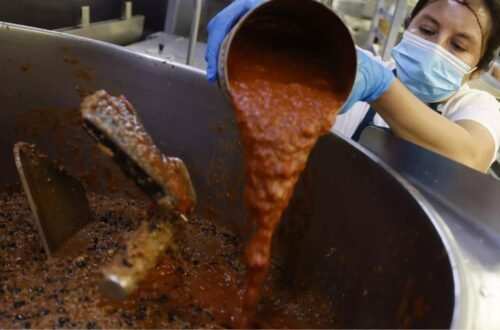Have you noticed that every product now claims to be high in protein? From coffee and yogurt to pasta and cereal, food brands are racing to add extra protein to everything.
But why is this happening? Is it really healthy, or just another marketing trick? Let’s explore the real story behind the high-protein craze and what experts say about it.
The Rise of High-Protein Foods
It all started with people using fitness apps that recommend eating more protein to build strength or lose weight. One such person, Andie from Vancouver, says she began looking for high-protein versions of the foods she already liked — like milk, yogurt, and even coffee.
She found that most of them tasted the same as the regular versions, so she started buying them often.
She even tried high-protein lattes from a Canadian restaurant chain. The price was a little higher, but she didn’t mind paying a couple of extra dollars for what seemed like a healthier choice.
And she’s not alone. Many shoppers now look for the word “protein” on food packages. This has pushed food companies to create more of these products every year.
What the Numbers Show
According to NielsenIQ, sales of foods labelled “high in protein” grew by 4.8% between March 2024 and March 2025 in the United States.
Milk is one of the biggest winners in this trend. For the first time since 2009, milk consumption has actually gone up. Experts say this is partly because people want natural protein from milk instead of artificial or plant-based options.
However, not all products are doing well. Plant-based drinks like almond milk and oat milk are starting to lose popularity. In 2020, people searched more for “oat milk” than “whole milk” on Google, but now the situation has reversed.
High-Protein Market Overview
| Category | Trend | Market Value (2025) | Notes |
|---|---|---|---|
| Cow’s Milk | Rising | $69.3 billion | Natural protein demand increasing |
| Plant-Based Milk | Falling | $8.4 billion | Almond milk losing share |
| Whey Protein | Growing | Multi-billion sector | Used in supplements and foods |
| Vegan Protein Alternatives | Expanding | Not disclosed | New fermentation-based proteins emerging |
What Nutrition Experts Warn
Many nutritionists say people in rich countries already eat enough protein. Dr. Federica Amati from Imperial College London explains that most adults don’t need extra protein unless they are elderly, undernourished, or have certain medical conditions.
She warns that too much protein, especially from animal sources, may raise health risks later in life. Plant-based proteins, on the other hand, don’t show the same risk.
Dr. Amati also says that “high-protein” on a label doesn’t always mean it’s healthy. Companies often add cheap protein powder to products and increase the price. She advises people to eat whole foods like beans, lentils, eggs, and Greek yogurt, which already have plenty of protein.
According to many experts, the real “hero nutrient” people need more of is fiber, not protein.
The Business Behind the Protein Boom
Food companies see this trend as a big business opportunity. A French startup called Verley uses fermentation to make a milk protein called beta-lactoglobulin without using cows. The process is considered eco-friendly because it reduces water use and greenhouse gases.
Although these lab-made proteins are more expensive for now, they might become cheaper as production grows. The company hopes its vegan-friendly protein will appeal to health-conscious and environmentally aware customers.
The high-protein craze has taken over the food world. From lattes to snacks, almost every brand is jumping on the trend. But experts remind us that most people already get enough protein from a normal diet.
Instead of spending more money on fancy labels, it’s smarter to eat natural, whole foods that give balanced nutrition. In the end, good health isn’t about chasing every new diet trend — it’s about balance, variety, and eating what your body truly needs.
FAQs
Is eating too much protein bad for you?
Eating too much protein can increase health risks later in life. It’s best to eat in moderation.
Are high-protein foods worth the price?
Not always. Some are overpriced just because of marketing. Whole foods often give the same benefits at a lower cost.
Who needs extra protein the most?
The elderly, malnourished people, and those recovering from illness might benefit from a higher-protein diet.









